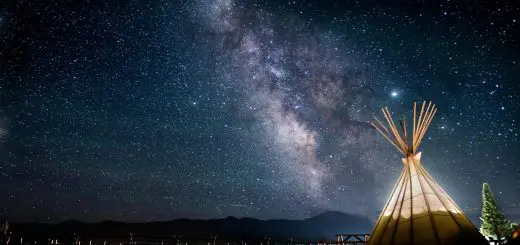Gnosticism and the Cosmic Drama

Looking for more amazing products? Check out our online store and explore our collection here! Happy shopping!
Before diving in, please note: This post is for informational purposes only. If you’d like to know more about how we approach topics, feel free to check out our friendly Disclaimer Page.
Hey there, amazing readers! 
We’re committed to delivering quality posts, and your support (even just sticking around despite the ads) means everything to us. So, bear with us, and thanks for helping us keep the good vibes rolling. Now, on to the fun stuff!
TRANSLATE BUTTON AT THE END OF THE ARTICLE
Introduction to Gnosticism
Gnosticism is a diverse religious movement that emerged in the early centuries of the Common Era.
The term "Gnosticism" comes from the Greek word "gnosis," which means knowledge.
Gnostics believed that salvation comes through the pursuit of spiritual knowledge or gnosis, rather than faith alone.
This knowledge was seen as a deep understanding of the divine realm and the true nature of the self.
Gnosticism is characterized by its emphasis on dualism, the belief in a higher, transcendent reality, and a lower, flawed material world.
This worldview has profound implications for how Gnostics view the cosmos and humanity’s place within it.
Origins of Gnosticism
The origins of Gnosticism are complex and multifaceted, with influences from various philosophical, religious, and cultural traditions.
Gnosticism likely emerged in the Hellenistic world, drawing on elements of Greek philosophy, Jewish mysticism, and Persian dualism.
Some scholars believe that Gnosticism may have roots in pre-Christian sects such as the Essenes or the mystery cults of the ancient world.
Gnostic ideas were also influenced by early Christian teachings, but Gnosticism itself was considered heretical by many orthodox Christian groups due to its radical reinterpretation of biblical stories and rejection of institutional authority.
Gnostic Beliefs and Teachings
Gnosticism encompasses a wide range of beliefs and teachings, but some common themes run through most Gnostic sects.
Central to Gnostic thought is the belief in a transcendent, unknowable God or ultimate reality, often referred to as the Monad.
This ultimate reality is beyond human comprehension and is the source of all existence.
Gnostics also believed in the existence of intermediary beings known as Aeons, emanations of the divine that bridge the gap between the ultimate reality and the material world.
These Aeons form a complex, hierarchical structure that shapes the cosmos and influences human spirituality.
The Cosmic Drama in Gnosticism
One of the most distinctive features of Gnostic cosmology is the concept of the Cosmic Drama.
According to Gnostic teachings, the material world is not the creation of the ultimate God but of a lesser, ignorant deity known as the Demiurge.
The Demiurge is a flawed and malevolent being who traps human souls in the physical realm, causing suffering and ignorance.
The Cosmic Drama is the ongoing struggle between the forces of light and darkness, knowledge and ignorance, as human souls seek to liberate themselves from the material world and return to the divine source.
Role of Archons in Gnostic Cosmology
In Gnostic cosmology, the Archons are malevolent beings that serve the Demiurge and seek to keep human souls trapped in the material world.
These entities are often depicted as rulers or authorities who govern the physical realm and enforce ignorance and suffering.
Gnostics believed that the Archons were obstacles to spiritual liberation and that individuals must overcome their influence through gnosis and spiritual insight.
The Archons represent the negative forces that hinder human evolution and enlightenment, making them crucial figures in the Gnostic understanding of the cosmos.
The Demiurge and the Material World
The Demiurge plays a central role in Gnostic cosmology as the creator of the material world.
Unlike the ultimate God, who is pure and transcendent, the Demiurge is a flawed and ignorant deity who mistakenly believes himself to be the supreme being.
The material world created by the Demiurge is seen as a distorted and imperfect reflection of the divine realm, filled with suffering, chaos, and ignorance.
Gnostics viewed the physical universe as a prison for the soul, a place of exile from which individuals must escape through spiritual knowledge and enlightenment.
Gnosis: The Path to Salvation
Gnosis, or spiritual knowledge, is the key to salvation in Gnostic thought.
Gnostics believed that through gnosis, individuals could awaken to their true spiritual nature and transcend the limitations of the material world.
This knowledge was not acquired through intellectual study or faith but through direct, mystical experience of the divine.
Gnosis was seen as a transformative process that led to spiritual liberation and reunion with the ultimate reality.
By attaining gnosis, individuals could overcome the influence of the Archons and the Demiurge and achieve salvation.
Gnostic Texts and Scriptures
Gnostic teachings were preserved in a variety of texts and scriptures, many of which were discovered in the 20th century, such as the Nag Hammadi library.
These texts include gospels, apocalypses, and philosophical treatises that offer insights into Gnostic cosmology, ethics, and spirituality.
Some of the most well-known Gnostic texts include the Gospel of Thomas, the Gospel of Mary, and the Secret Book of John.
These writings provide a window into the diverse beliefs and practices of ancient Gnostic communities and have been instrumental in shaping our understanding of Gnosticism.
Influence of Gnosticism on Western Thought
Despite being considered heretical by orthodox Christian authorities, Gnosticism has had a profound influence on Western thought and spirituality.
Gnostic ideas have influenced various philosophical and religious movements throughout history, including Neoplatonism, Hermeticism, and even modern New Age beliefs.
The emphasis on spiritual knowledge, dualism, and the pursuit of salvation through gnosis has resonated with thinkers and seekers across the centuries, contributing to the rich tapestry of Western intellectual and spiritual traditions.
Modern Interpretations of Gnostic Teachings
In recent years, Gnostic teachings have experienced a resurgence of interest and popularity among spiritual seekers and scholars.
Modern interpretations of Gnosticism draw on ancient texts and traditions to explore themes of spiritual enlightenment, liberation, and the nature of reality.
Gnostic ideas have been reimagined in light of contemporary concerns, such as environmentalism, social justice, and personal growth.
The enduring appeal of Gnostic teachings lies in their radical approach to spirituality and their emphasis on individual experience and insight as the path to salvation.
Criticisms of Gnosticism
Critics of Gnosticism have raised several objections to its teachings, including accusations of dualism, elitism, and pessimism.
Some have argued that Gnostic cosmology overly emphasizes the negative aspects of the material world and undervalues the potential for positive transformation and growth.
Critics also point to the esoteric and cryptic nature of Gnostic texts, which can make them difficult to interpret and understand.
Additionally, Gnosticism’s rejection of traditional religious institutions and authorities has been seen as a source of division and conflict within spiritual communities.
Conclusion: Relevance of Gnostic Cosmology Today
In conclusion, Gnostic cosmology continues to capture the imagination of those who seek a deeper understanding of the mysteries of existence.
The Cosmic Drama, with its intricate interplay of light and darkness, knowledge and ignorance, offers a compelling framework for exploring the complexities of the human experience.
While ancient Gnosticism may seem distant and esoteric, its themes of liberation, gnosis, and spiritual enlightenment remain relevant in our ever-evolving world.
By delving into the rich tapestry of Gnostic teachings, we can uncover new insights into the nature of reality, the self, and our place in the cosmic drama.
Gnosticism reminds us that salvation is not merely a destination but a journey of discovery and transformation, guided by the light of spiritual knowledge.

The Enlightenment Journey is a remarkable collection of writings authored by a distinguished group of experts in the fields of spirituality, new age, and esoteric knowledge.
This anthology features a diverse assembly of well-experienced authors who bring their profound insights and credible perspectives to the forefront.
Each contributor possesses a wealth of knowledge and wisdom, making them authorities in their respective domains.
Together, they offer readers a transformative journey into the realms of spiritual growth, self-discovery, and esoteric enlightenment.
The Enlightenment Journey is a testament to the collective expertise of these luminaries, providing readers with a rich tapestry of ideas and information to illuminate their spiritual path.
Our Diverse Expertise
While our primary focus is on spirituality and esotericism, we are equally passionate about exploring a wide range of other topics and niches 

To ensure we provide the most accurate and valuable insights, we collaborate with trusted experts in their respective domains 
Our blog originally focused on spirituality and metaphysics, but we’ve since expanded to cover a wide range of niches. Don’t worry—we continue to publish a lot of articles on spirituality! Frequently visit our blog to explore our diverse content and stay tuned for more insightful reads.
Hey there, amazing reader! 
Check out our store here and take a peek at some of our featured products below! Thanks for being awesome!











